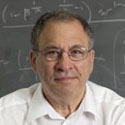Advisory Board and Editors Evolutionary Studies

Daniel J. G. Lahr
I am interested in an array of questions regarding protistan evolution and diversity. I have worked in protistology since my 1st undergraduate year, then did a masters in taxonomy of testate amoebae and a PhD in evolutionary biology, focusing on amoebozoans. My research focuses on constructing phylogenetic trees to answer broad questions in the evolutionary biology of microbes.

Max R Lambert
I'm an ecologist and environmental scientist who studies a diversity of conservation and restoration issues for biodiversity and ecosystems.

Barbara L Langille
I am currently an Associate Research Scientist at the Huntsman Marine Science Centre, working in the Atlantic salmon breeding and genetics division. I am tackling various research projects that involve genomically characterizing qualitative and quantitative traits. I recently finished a postdoc position at the Bedford Institute of Oceanography, working on various population structure and evolutionary genetics projects. Specifically, I was focusing on mito-nuclear interactions in trans-Atlantic fish, environmental associations and population structure in cleaner fish, and structural variants.
Dr. Barbara Langille obtained a PhD from the University of Adelaide, where she investigated the regression of vision/eye genes in subterranean diving beetles, evaluated modes of speciation, and determined behavioral responses of eyeless beetles to light. Dr. Langille also obtained a MSc from Memorial University of Newfoundland and Labrador, where she investigated the refugial origins and hybridization of freshwater fish.

Hilmar Lapp
Aside from my role as Director of Informatics at Duke University's Center for Genomic and Computational Biology (GCB), I am a PI for the NSF-funded project on creating a model and standard for phyloreferencing (http://phyloref.org), and I am a co-PI of the (also NSF-funded) Phenoscape project (http://phenoscape.org) on ontological annotation of evolutionary phenotype observations. I am a co-founder and current Board of Directors member of Data Carpentry (http://datacarpentry.org), and I was part of the founding team for Dryad (http://datadryad.org), a digital repository for data supporting scientific publications. I have also served in the leadership of the Open Bioinformatics Foundation (OBF) since its inception in 2001.
Before joining Duke's GCB, I was at the US National Evolutionary Synthesis Center (NESCent), where I initiated many of NESCent's cyberinfrastructure initiatives aimed at grass-roots building of community capacity, including the NESCent's hackathon program and Google Summer of Code™ (GSoC) participation.

Jim Leebens-Mack
Prof. James H. Leebens-Mack is a Professor of Plant Biology within the Department of Plant Biology at the University of Georgia, US.
His research employs genomic, phylogenetic and experimental analyses to investigate the genetic and ecology processes that influence diversification. Specific interests include the molecular genetics of diversification including speciation; the molecular basis of adaptation; the evolution of genome structure; genomic processes influencing gene family evolution; the evolutionary consequences of species interactions; and the coevolution of genes interacting in regulatory and developmental pathways.

Elliot J Lefkowitz
Professor of Microbiology at the University of Alabama at Birmingham (UAB); Director of Informatics for the UAB Center for Clinical and Translational Science; Data Secretary of the International Committee on Taxonomy of Viruses (ICTV) and Editor-In-Chief of the ICTV Online (10th) Report on Virus Taxonomy. My research focuses on contributing to the understanding of microbial (especially viral) genomics and evolution by developing and utilizing computational tools and bioinformatics techniques to mine sequence and other data for significant patterns characteristic of function and/or evolution.

Simon A. Levin
George M. Moffett Prof. of Biology at Princeton & the Director of the Center for BioComplexity. Past Chair of the Board of the Beijer Inst. of Ecological Economics, past President of the Ecological Society of America, past President of the Society for Mathematical Biology, past Chair of the Council of IIASA, and past Co-Chair of the Science Board of the Santa Fe Institute. Awards include the A.H. Heineken Prize for Environmental Sciences, the Kyoto Prize in Basic Sciences, and the Margalef Prize

Jingchun Li
Associate Professor in the Department of Ecology and Evolution, University of Colorado Boulder. Curator at the Museum of Natural History, University of Colorado Boulder. Packard Fellow, National Geographic Explorer.

Bruce S Lieberman
Dr. Bruce Lieberman is a paleontologist and evolutionary biologist interested in macroevolution and the evolutionary history of invertebrates.

Charlotte Lindqvist
Assistant Professor, Department of Biological Sciences, University at Buffalo 2010-present; Postdoctoral Fellow/Research Associate, University of Oslo 2003-2008; PhD, University of Copenhagen 2003.

Carl P. Lipo
A Professor of Anthropology and Director of the Environmental Studies Program at Binghamton University in New York.

Nicholas J Loman
Nick works as an Independent Research Fellow in the Institute for Microbiology and Infection at the University of Birmingham, sponsored by an MRC Fellowship in Biomedical Informatics. His research explores the use of cutting-edge genomics and metagenomics approaches to the diagnosis, treatment and surveillance of infectious disease. Nick has so far used high-throughput sequencing to investigate outbreaks of important pathogens such as Pseudomonas aeruginosa,Acinetobacter baumannii and Shiga-toxin producing Escherichia coli. His current work focuses on the application of novel sequencing technologies such as the Oxford Nanopore for genome diagnosis and epidemiology of important pathogens, including most recently real-time surveillance of the Ebola outbreak in West Africa. A more general aim is to develop bioinformatics tools to aid the interpretation of genome and metagenome-scale data in routine clinical practice in collaboration.

